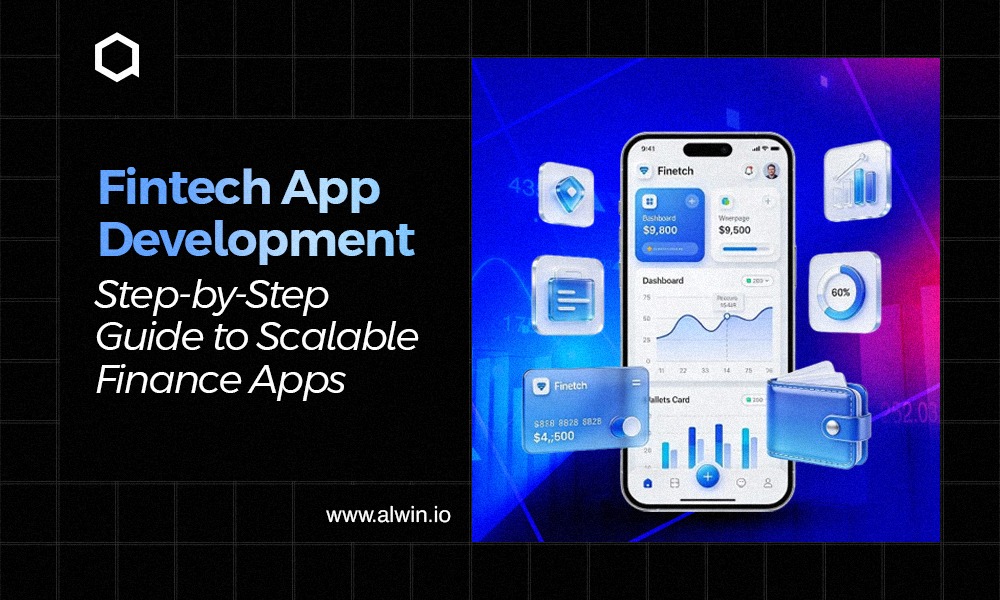Peer-to-peer (P2P) crypto exchanges revolutionize how individuals trade cryptocurrencies by enabling direct transactions between users, and eliminating the need for intermediaries. These platforms operate autonomously using blockchain technology, ensuring transactions are secure, transparent, and decentralized.
Key Features of P2P Crypto Exchanges:
Decentralized Transactions: Users control their private keys, enhancing security and reducing dependence on centralized entities.
Private Transactions: Direct peer-to-peer transactions minimize risks associated with hacking and identity theft, fostering trust among users.
Lower Fees: P2P exchanges typically offer lower transaction costs compared to traditional exchanges, making cryptocurrency trading more cost-effective.
Global Accessibility: With no geographical limitations, P2P exchanges facilitate seamless global trading, enhancing market liquidity and accessibility.
Escrow Services: Many P2P exchanges employ escrow services to secure transactions, ensuring funds are released only upon satisfactory completion.
Opportunities for Startups in Launching a P2P Exchange:
1. Innovation and Security:
By embracing blockchain's decentralized nature, startups can pioneer innovative security features that prioritize user control and privacy. This differentiation fosters trust and attracts security-conscious traders.
2. Market Opportunity:
The rapid growth of decentralized finance (DeFi) underscores a burgeoning demand for secure and user-centric trading platforms. Startups entering the P2P exchange market can capitalize on this trend, offering solutions that align with evolving market preferences.
3. Lower Barrier to Entry:
Unlike centralized exchanges requiring extensive infrastructure and compliance with regulatory frameworks, P2P exchanges offer a more agile and cost-effective entry point. Startups can leverage this streamlined operational model to allocate resources efficiently and focus on enhancing platform features and user experience.
In this article, we have covered the steps to start a P2P crypto exchange, its benefits, costs, and development methodologies, providing startups with comprehensive guidance to navigate the complexities of launching and scaling their platforms. Lets start with the Steps to start a P2P Crypto Exchange
Steps to Start a P2P Exchange Platform
1. Conducting Market Research and Analysis
Conducting comprehensive market research is essential to gather insights into target audience demographics, preferences, and competitor strategies. This step lays the foundation for launching a P2P platform that resonates with user needs and market demands. By understanding market dynamics and user behavior, you can tailor your platform's features and marketing strategies to attract a larger user base. Moreover, informed decisions based on market research can enhance brand visibility through effective targeting and word-of-mouth referrals, driving sustained user growth.
2. Assuring Compliance with Regulations
Ensuring compliance with regulatory frameworks is crucial for establishing trust and credibility in the cryptocurrency market. By adhering to legal requirements and industry standards from the outset, you mitigate risks associated with regulatory non-compliance. This step not only protects your platform from legal liabilities but also fosters a secure and transparent environment for users to trade cryptocurrencies safely.
3. Estimating Costs & Finalizing Scope
Accurately estimating costs and finalizing the project scope are fundamental to managing project finances and timelines effectively. By meticulously assessing costs and defining project scope, you can allocate resources efficiently and maintain financial transparency throughout the development process. This step enables you to stay within budget constraints while delivering a feature-rich P2P exchange that meets market expectations and user demands.
4. Designing UI/UX
Designing an intuitive UI and optimizing UX are pivotal in creating a seamless and engaging user experience on your P2P exchange platform. A well-designed interface enhances usability, navigation, and overall user satisfaction. By focusing on UI/UX design, you improve user retention rates and encourage active participation in trading activities. This step is crucial for differentiating your platform in a competitive market and attracting loyal users.
5. Integrating Security Measures
Implementing robust security measures is paramount to safeguarding user assets and data integrity on your P2P exchange. By incorporating advanced security protocols such as encryption, multi-factor authentication (MFA), and secure wallet solutions, you bolster platform security against cyber threats and unauthorized access. This step instills confidence among users and reinforces your commitment to protecting their digital assets in a decentralized trading environment.
6. Developing Backend Processes
Building a scalable and efficient backend infrastructure is essential for ensuring smooth transaction processing and platform reliability. A well-developed backend supports seamless order matching, real-time data management, and system scalability to accommodate growing user demands. By optimizing backend processes, you enhance operational efficiency and deliver a high-performance P2P exchange that meets the needs of both novice and experienced traders.
7. Integrating Wallets & Payment Gateways
Integrating diverse cryptocurrency wallets and reliable payment gateways facilitates seamless fund transfers and enhances user convenience on your P2P exchange. Supporting multiple cryptocurrencies and fiat currencies expands market accessibility and attracts a diverse user base. This step streamlines deposit and withdrawal processes, fostering liquidity and improving overall trading experience for users.
8. Testing & Deploying
Thoroughly testing and deploying in phases are critical to identifying and resolving potential technical issues before launching your P2P exchange platform. Rigorous testing ensures platform stability, functionality, and security across different scenarios. By deploying the platform in stages, you minimize operational risks and disruptions, providing users with a reliable and robust trading environment from day one.
Benefits of Launching a P2P Exchange Platform
1. Lower Fees
P2P exchanges typically impose lower transaction fees compared to traditional centralized exchanges. This cost-effectiveness appeals to traders looking to minimize costs, potentially increasing trading volume and platform liquidity.
2. Decentralization
Operating without a central authority empowers users with control over their funds and transactions. This decentralized approach aligns with the principles of cryptocurrency and blockchain technology, enhancing user autonomy and privacy.
3. Global Accessibility
P2P exchanges facilitate trading across borders without geographical restrictions. This global accessibility expands market reach and user base, fostering international participation in cryptocurrency trading.
4. Enhanced Security
P2P exchanges integrate robust security measures such as escrow services, multi-signature wallets, and decentralized transaction validation. These features mitigate risks associated with hacking and fraud, bolstering user trust and platform reliability.
5. Market Opportunity
Launching a P2P exchange capitalizes on the growing demand for decentralized financial solutions (DeFi). The platform can cater to users seeking alternative trading options beyond traditional financial systems, tapping into a niche market segment.
6. Flexibility and Customization
P2P exchanges offer flexibility in trading options and customizable interfaces, accommodating diverse user preferences and trading strategies. This customization enhances user experience and satisfaction, fostering loyalty and engagement.
7. Revenue Models
Discussing revenue models demonstrates the platform's sustainability and profitability potential. Common revenue streams include trading fees, withdrawal fees, listing fees for tokens, premium services, and advertising opportunities. These diverse income sources contribute to financial stability and business growth.
8. Community Building
P2P exchanges facilitate community engagement through direct interaction and shared trading experiences among users. Building a strong community enhances user loyalty, fosters word-of-mouth referrals, and strengthens the platform's market presence.
9. Innovation in Financial Services
By embracing P2P exchange models, startups contribute to innovation within the financial services sector, particularly in cryptocurrency and blockchain technology. This innovation attracts tech enthusiasts, investors, and industry leaders, positioning the platform as a pioneer in decentralized finance.
10. Scalability
P2P exchanges leverage blockchain technology's scalability features to expand operations and accommodate growing user bases seamlessly. This scalability ensures operational efficiency and supports long-term growth strategies without significant infrastructure changes.
Methodologies to Develop a P2P Crypto Exchange
1. Developing a P2P Crypto Exchange from Scratch
Developing a P2P crypto exchange from scratch involves constructing the entire platform infrastructure and features without relying on pre-existing scripts or frameworks. This approach offers maximum customization and control over every aspect of the exchange's design and functionality. Here’s a detailed overview:
Customization and Control:
Building from scratch allows you to customize the platform completely to meet specific business requirements, user preferences, and regulatory compliance needs. This approach is ideal for startups and enterprises aiming to differentiate their exchange with unique features and innovative solutions.
Technology Stack Selection:
You select the appropriate technology stack, including programming languages, frameworks, database solutions, and integration of blockchain technology (such as Ethereum, Binance Smart Chain, or others) for decentralized transaction processing.
Complexity and Development Time:
Developing from scratch typically requires more time and involves higher complexity compared to using pre-built scripts. It demands expertise in blockchain development, security protocols, and UI/UX design to ensure a robust and user-friendly exchange platform.
Scalability and Future-proofing:
Building from scratch offers scalability advantages as you design the platform to handle increasing transaction volumes and user growth over time. Future-proofing the exchange involves anticipating market trends and integrating flexible architecture for future upgrades and regulatory changes.
2. Leveraging a P2P Exchange Script
Using a P2P exchange script involves adopting pre-built software solutions or scripts that provide a foundational framework for launching a P2P crypto exchange. Here are key aspects to consider:
Time and Cost Efficiency:
Leveraging a P2P exchange script significantly reduces development time and costs compared to building from scratch. Scripts typically include basic functionalities and modular components that you can customize and scale according to business needs.
Ready-made Features:
P2P exchange scripts often come with essential features such as user authentication, wallet management, order matching, and escrow services. These features are pre-coded and ready to deploy, speeding up time-to-market for startups and businesses entering the crypto exchange sector.
Customization and Adaptability:
While scripts provide foundational features, you can customize them to align with specific branding, UI/UX requirements, and additional functionalities. Customizing the script ensures the exchange meets unique business goals and user expectations.
Security and Compliance:
Security measures and regulatory compliance depend on the script provider's standards and protocols. It's crucial to choose a reputable script provider that prioritizes robust security practices and adheres to global regulatory frameworks to protect user assets and ensure legal compliance.
Maintenance and Support:
Script providers often offer ongoing maintenance and support services, including updates, security patches, and technical assistance. This ensures the exchange remains operational, secure, and compliant with evolving industry standards and market demands.
Cost of Developing a P2P Crypto Exchange
The cost of developing a P2P crypto exchange platform can vary significantly based on your chosen development strategy and specific project requirements. Here’s an overview of the typical cost ranges based on industry insights:
From Scratch Development:
Developing a P2P crypto exchange from scratch typically ranges between $30,000 and $80,000. This approach offers extensive customization and control over the platform’s design, features, and security protocols.
White Label P2P Exchange Software:
Opting for white label P2P exchange software, which includes essential functionalities for operating a crypto exchange, generally costs between $7,000 and $10,000. This option provides a quicker time-to-market with basic features already integrated.
P2P Exchange Script Costs:
Starting costs for a P2P crypto exchange script begin around $5,000, with pricing varying based on additional features and integrations. Script solutions offer a cost-effective option for startups looking to launch quickly with basic functionalities.
Additional Factors Influencing Cost:
Factors such as frontend development ($8,000 - $20,000), user interface design ($5,000 - $15,000), and security implementations contribute to the overall development cost. Customizations, scalability requirements, and regulatory compliance also impact the final expenditure.
Understanding these cost considerations allows businesses to budget effectively and choose a development approach that aligns with their operational needs and growth objectives. For personalized insights and a detailed consultation regarding your P2P exchange development project, feel free to contact our experts.
Conclusion: Why Choose Us for P2P Exchange Development?
At Wealwin Technologies, we specialize in blockchain services and have successfully launched over 500 projects in the cryptocurrency sector. We excel in building robust crypto exchanges, including P2P exchanges, and providing exchange scripts that exceed market standards. Here’s why you should partner with us:
Proven Track Record: We have delivered over 500 blockchain projects, demonstrating extensive experience and deep industry knowledge. Our portfolio showcases successful implementations across various blockchain applications, including cryptocurrency exchanges.
Specialization in Crypto Exchanges: We specialize in developing customized crypto exchanges tailored to your specific business requirements. Our team ensures a secure, scalable, and user-friendly platform, whether you need a P2P exchange, decentralized exchange (DEX), or hybrid model.
Advanced Exchange Scripts: Our exchange scripts surpass industry standards, offering essential features and functionalities necessary for swiftly launching a competitive P2P exchange. We prioritize security, usability, and compliance to empower your exchange with cutting-edge technology.
Comprehensive Blockchain Services: Beyond exchange development, we offer comprehensive blockchain services, including smart contract development, tokenization solutions, blockchain consulting, and integration with emerging technologies like DeFi.
Client-Centric Approach: We are committed to understanding your unique business goals and providing tailored solutions that align with your vision. Our dedicated team of blockchain experts ensures transparent communication, timely project delivery, and ongoing support to drive your success.
Choosing Wealwin technologies means gaining a strategic advantage in the competitive cryptocurrency landscape. Whether you are a startup venturing into crypto or an established firm seeking to enhance your blockchain capabilities, we empower you with reliable, innovative solutions that set you apart in the market.
Contact us today to discuss your P2P exchange development needs and embark on a transformative journey in blockchain and cryptocurrency.



